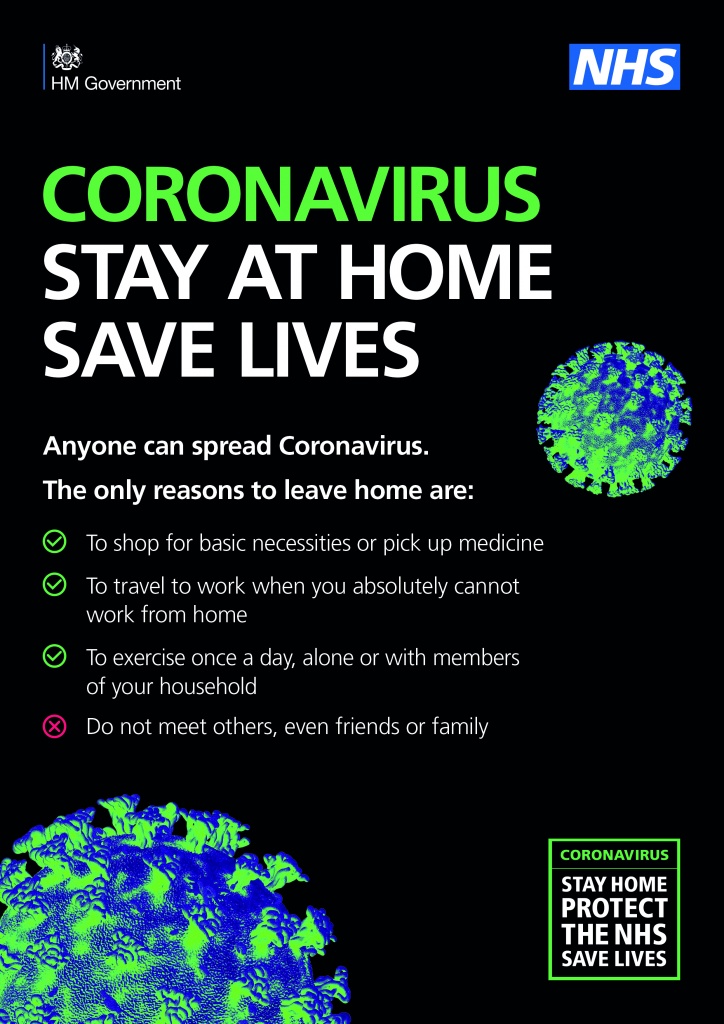
At the Downing Street daily coronavirus press conference update on 20 April Chancellor Rishi Sunak was with Professor Angela McLean, Deputy Chief Scientific Adviser and Yvonne Doyle, Medical Director at Public Health England.
Chancellor Sunak said:Before I provide an update on the economic situation, let me start by addressing the issue uppermost on people’s minds, personal protective equipment, or PPE. This is an international challenge that many other countries are experiencing.
Alongside the efforts of British businesses and our embassies around the world, we are working hard to get the PPE our frontline NHS and social care staff need.
We have appointed Paul Deighton, formerly Chief Executive of London 2012 Olympics, to lead on our domestic efforts to make an increase the supply of PPE. And we are receiving shipments of PPE regularly from suppliers in the UK and abroad.
We’re working to resolve the Turkish shipment of PPE as soon as possible, following some unexpected delays at the weekend.Today, we have unloaded a shipment of 140,000 gowns from Myanmar. And we are, of course, continuing to pursue every possible option for PPE procurement.
Let me turn now to the economic situation. Exactly a month ago today I stood at this lectern and said we would step in and help pay to people’s wages. We promised this support would be available by the end of April, today, we deliver our promise.
HMRC opened the Coronavirus Jobs Retention Scheme at 8 o’clock this morning. As of 4 o’clock this afternoon, over 140,000 firms have applied and the grants they’ll receive will help pay the wages of more than a million people, a million people who, if they hadn’t been furloughed, would have been at risk of losing their job.
Firms applying today should receive their cash in six working days. HMRC will continue to provide updates on the number of people furloughed.
And let me put on record my thanks to the thousands of staff at HMT and HMRC who have made this happen.
People have come out of retirement, put aside their normal duties, and worked around the clock, from their kitchen tables and spare rooms, to get this new system up and running.
This remarkable story of public service reminds us how many different people are playing a role in this crisis – and I’m very grateful to all of them, for everything they’ve done.
It’s important to be clear why we have introduced the CJRS, and the other schemes we’ve put in place to support the self-employed and businesses.
We’ve never seen an economic crisis like this one. Times like this demand that we put aside ideology and orthodoxy.
Times like this demand that the state turns to its most immediate purpose: the protection and support of its people.
The goal of the new schemes we’ve developed is to maintain as many people as possible in their existing jobs; to support viable businesses to stay afloat; and to protect the incomes of the self-employed to allow them to trade again.
To maintain, in other words, our economy’s productive capacity so that we can bridge through this crisis.
That is what we have done and the Office for Budget Responsibility said last week that the situation would have been much worse if it hadn’t been for our actions.
But in everything we have done, even in our defence against the immediate crisis, we have also been sowing the seeds of our ultimate recovery.
As we look ahead and start to plan for our recovery, it is critical we don’t just maintain companies and jobs that already existvbut that we also encourage the businesses, jobs and technologies of the future.
Innovation and entrepreneurship have powered growth in our country for centuries; and it is what will drive our growth as we recover from this crisis.
To that end, earlier today, I launched two initiatives to support the most innovative firms in the county, worth £1.25 billion.
First, we are launching a new Future Fund worth £500 million, to make sure that high growth companies across the UK can continue to access the investment they need during the crisis.
Launching in May, the Future Fund will provide UK-based early stage companies with convertible loans between £125,000 and £5 million.
Our Future Fund will match investments made by private investors in early stage businesses, on terms that protect the UK taxpayer.
Second, alongside the new Future Fund, the Business Secretary, Alok Sharma, has worked closely with Innovate UK, our national innovation agency to provide £750 million of grant and loan funding for tens of thousands of highly innovative firms in every sector, and every region and nation of the UK.
He, like I, believes strongly in the role of innovation and enterprise in recovering our economy.
As I said last week, right now, the most important thing we can do for the health of our economy is to protect the health of our people.
We must continue to slow the spread of the virus; to make sure fewer people need hospital treatment at any one time; and protect the NHS’s ability to cope.

Today, the government’s ongoing monitoring and testing programme reports:
- 501,379 tests for coronavirus have now been carried out, including 19,316 tests carried out yesterday
- 124,743 people have tested positive, an increase of 4,676 cases since yesterday
- 17,971 people are currently in hospital with coronavirus in the UK
- and sadly, of those who have been hospitalised, 16,509 have now died – an increase of 449 fatalities since yesterday
Our thoughts are with the families and friends of all those who have lost their lives.
As we look forward, towards the next stage in our battle against this disease, there are encouraging signs we have been making progress. But before we consider it safe to adjust any of the current social distancing measures, we must be satisfied that we have met the five tests set out last week by the First Secretary.
Those tests mean that the NHS can continue to cope; that the daily death rate falls sustainably and consistently; that the rate of infection is decreasing; that the operational challenges have been met; and, most importantly, that there is no risk of a second peak.
So I want to thank each and every person across the UK who is following the government’s advice to stay at home, protect our NHS and, ultimately, save lives.

Kindly follow us on twitter:@AfricanVoice2










